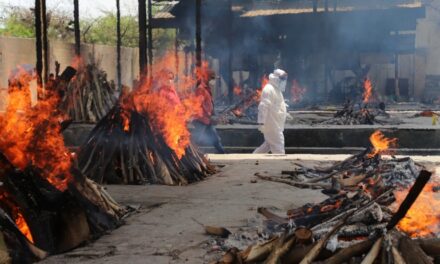The escalating impacts of climate change are felt worldwide, from record-breaking heatwaves to catastrophic wildfires and rising sea levels. While the physical consequences are widely discussed, there’s another underreported consequence: the emotional toll on young people. As climate change reshapes the world they will inherit, many adolescents and young adults are grappling with anxiety and fear for the future.
Abby Rafeek, a 14-year-old high school student from Gardena, California, expresses her concerns, particularly about the wildfires that have ravaged her community. “It’s definitely affecting my life because it’s causing stress thinking about the future,” she says, adding that the damage to her local environment and the air quality are constant worries. Abby’s story is shared by many young people who are increasingly anxious about climate change.
Recent research shows that a significant number of adolescents are feeling the weight of this global crisis. A survey at the Children’s Hospital of Orange County found that climate change is a growing source of anxiety for youth. Pediatric emergency physician Dr. Rammy Assaf administered the survey to over 800 children and their caregivers, discovering that feelings of helplessness, powerlessness, and hopelessness were prevalent when young people discussed their outlook on the planet’s future.
These concerns are not just a local phenomenon. A 2021 global survey of 10,000 young people across 10 countries revealed that 59% were very or extremely worried about climate change. In the U.S., a 2022 Harris Poll found that 89% of teenagers regularly think about the environment, and the majority are more worried than hopeful about what lies ahead.
Psychologist Dr. Susan Clayton, who co-created the adult climate change survey, explains that younger generations are more likely to experience climate anxiety due to having grown up with the awareness of the climate crisis. “Adolescents grew up with it as a real thing,” she says, adding that this has led to a sense of betrayal, as many young people feel that their governments are not doing enough to address the issue.
Abby shares this sentiment, believing that the lack of effective action on climate change is exacerbating her anxiety. “I think if we figure out how to live on Mars, we could definitely figure out how to live here in a healthy environment,” she says.
For parents, this growing concern can be difficult to navigate. Experts suggest that open communication is key to helping children cope with their climate anxiety. Louise Chawla, professor emerita at the University of Colorado-Boulder, emphasizes the importance of simply listening to children and allowing them to express their feelings. “Let them know it’s safe to express these emotions,” she advises.
Additionally, engaging in environmentally conscious activities, such as biking, walking, or participating in cleanup efforts, can provide a sense of agency and reinforce a commitment to the environment. Encouraging children to join environmental advocacy efforts can also help them feel less alone and more empowered.
Vickie Mays, a professor at UCLA, offers a hopeful perspective: climate anxiety doesn’t have to be just a source of stress. “It can be turned into advocacy, activism, or a reach for new knowledge to change the situation,” she says. By reframing their worries as a call to action, young people can be empowered to make a positive impact on the planet.
As climate change continues to disrupt the world, it’s crucial to address not only the environmental damage but also the emotional toll it’s taking on future generations. By supporting young people through their anxieties and involving them in efforts to create change, we can help them cope with the challenges of an uncertain future.












